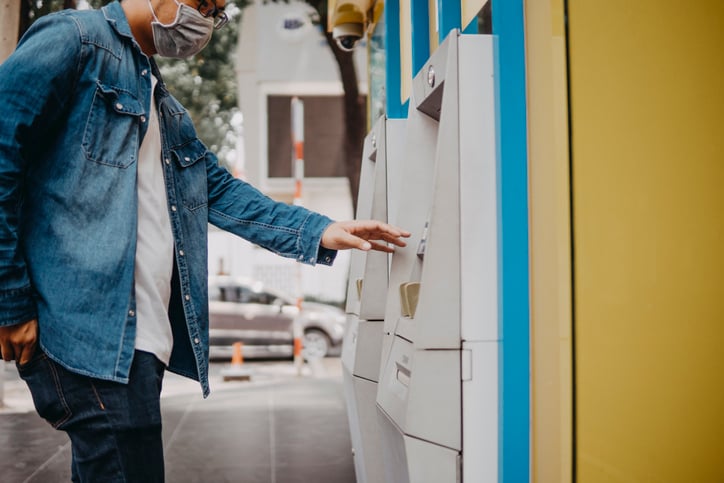The Unexpected Downside of Keeping Too Much Money in Your Checking Account
A checking account isn't the place to keep large amounts of money. Discover a rarely discussed downside of doing so and how it could lead to financial issues.

Checking accounts are designed for managing money. Paying your bills, transferring money to savings and retirement accounts -- things like that.
They're not the best place to keep money long term, but some people do it anyway. It could just end up happening if you don't know what to do with your money. And there are also those who see a large balance in their checking accounts as a form of financial security.
One big drawback of keeping too much money in your checking account is that it won't earn much interest. Checking accounts generally don't pay as much as savings accounts. But there's an even worse problem that could arise.
You may be more likely to spend that money
Different types of bank accounts serve different purposes. A checking account makes money easy to access, since it's designed for money management. You can get cash at the ATM using your debit card, withdraw funds to another account, or use them to pay bills. As the name suggests, you can even write checks from this type of account! Does anyone still use those?
A savings account is designed for storing your savings. It will keep that money safe and hopefully pay out a reasonable interest rate (high-yield savings accounts are best for that). It may not have all the fast withdrawal options you get with a checking account, but that's not the point with this type of account.
Because it's easier to dip into your checking account, people often see the balance as spending money. That's where keeping too much money in your checking account becomes a problem. When you put money in your savings or invest it, you're more likely to consider it untouchable. You've specifically set it aside for that purpose, so you won't want to use it for anything else.
When you keep it in your checking account, you may still see it as money you can spend. After all, you haven't earmarked it for anything in particular. You could save it, but you could also be tempted to use it on big purchases you don't really need.
Don't let all your money be spending money
Overspending is a common issue. One of the best ways to keep your spending under control is to give your money a purpose -- normally saving and investing. You can do this by transferring a portion of every paycheck to your savings and investment accounts. For example, you could save 10% of your income and invest another 10%.
Let's say you make $5,000 per month. If you're saving and investing 10%, then you'd transfer $500 to a high-yield savings account every month. This money would be for any savings goals you have, such as:
- An emergency fund
- A down payment on a home
- A holiday vacation
- An expensive item you want to buy
You'd also transfer $500 to your retirement accounts and invest it. This money, as you'd expect, would be for your retirement.
If you kept this $1,000 sitting around in your checking account, you'd be much more likely to spend it. Once you move it to your savings and investments, withdrawing it isn't as easy. You could still do it, but it's more of a hassle. And you probably won't want to, because you've set that money aside for a specific goal. As an added bonus, your money will also grow much more this way.
It's fine to keep some money in your checking account to pay your bills. A rule of thumb is to have one to two months of expenses there. But it doesn't do you any good to overfund your checking account. If you've done that, divide that extra cash up between your savings and investments so you can put it to better use.
These savings accounts are FDIC insured and could earn you 11x your bank
Many people are missing out on guaranteed returns as their money languishes in a big bank savings account earning next to no interest. Our picks of the best online savings accounts could earn you 11x the national average savings account rate. Click here to uncover the best-in-class accounts that landed a spot on our short list of the best savings accounts for 2024.
We're firm believers in the Golden Rule, which is why editorial opinions are ours alone and have not been previously reviewed, approved, or endorsed by included advertisers. The Ascent does not cover all offers on the market. Editorial content from The Ascent is separate from The Motley Fool editorial content and is created by a different analyst team.The Motley Fool has a disclosure policy.























